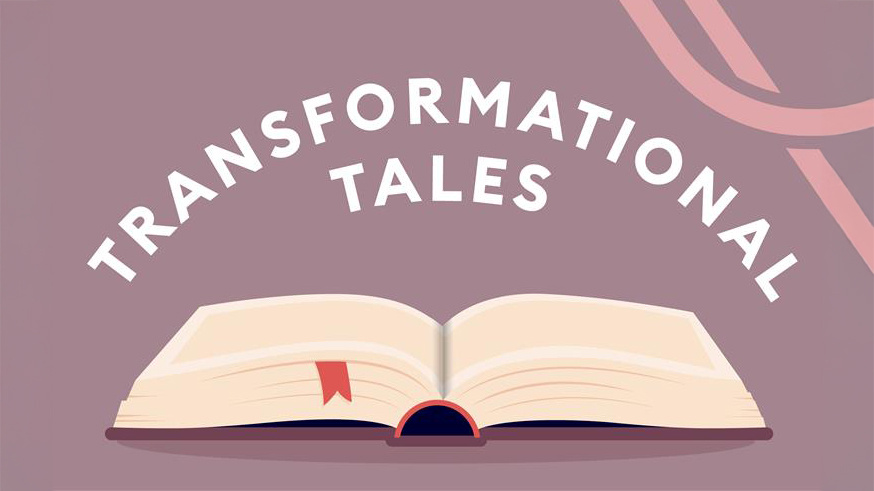Elva Ainsworth, CEO of Talent Innovations, describes the process of being diagnosed with chronic fatigue syndrome (CFS) and how she learnt to prioritise her wellbeing.
Everyone gets tired; totally to be expected, you might think? But what about when you are tired every day for no obvious reason?
I had got so used to waking unrefreshed, getting weary by 11am and staggering towards the evening that I hardly noticed it. I could keep going, so I did exactly that.
I took painkillers more often, I got more help with the business, the children and the cooking and I restricted my travel and commuting. I tried the usual recommendations – exercise, taking a holiday, eating well, avoiding caffeine and alcohol. They all helped a bit, apart from the exercise.
Going to the gym and taking a country walk would indeed make me feel better in the moment but afterwards I would be floored – as if someone had removed my battery completely. This, I now realise, was a key sign. And this approach was not nearly enough to set me on a path of recovery and healing.
Chronic fatigue syndrome (CFS) is a condition which is little understood, difficult to diagnose and tricky to recover from, but it is very common. Now more than ever, as those who have “long Covid-19” seem to be finding.
Get checked out
There are a number of key signs of CFS so, if you have been way more exhausted than seems reasonable for over six months, feel particularly fatigued after exertion (physical, mental or emotional) and usually love doing lots and doing it fast then you may have CFS or ME.
If your sleep isn’t refreshing (you may be sleeping a lot or be unable to sleep for long), if you have some muscle/joint pain and experience some degree of brain ‘fog’ (lack of ability to focus and process) then these are also common symptoms. Dizziness, swollen glands, anxiety and IBS are also on the list.
These symptoms may also come with conditions other than CFS so the first step to take is to get checked out with your doctor. Once other potential issues are eliminated then you can move on to the next step.
Acknowledge your condition
CFS can be mild, moderate or severely life-limiting but it always has an impact on you, your ability to work and live and on your family. It may not be easy to ‘treat’ in medical terms, but it can be managed and you can recover. The first step to this recovery is the acceptance that you have it.
Once you own that diagnosis, you can start to see how you have caused this condition. I can see how my determination to keep busy and active over-ruled everything else. I felt happier that way, but I didn’t realise for many years that it was making me ill.
What I wanted was not what I needed. I had to re-align my mind with my body and let go of my expectations of myself and my business. I had to learn to put my wellbeing first beyond everybody and everything.
Find your support team
Once you’ve tried fixing it yourself, you may realise this is not going to work and you need some help. The usual place to look is your GP, so it can be disappointing to find this may not get you very far; taking medication is usually unhelpful.
I thought I could handle it myself with my homeopath and osteopath and my empowering family and friends. After 30 years of coping, I had a particularly stressful year moving house and I had a relapse. I needed more help and was much relieved to discover there are now expert online programmes designed to support CFS sufferers. I
t took a deep dive into eight different areas before I found the missing pieces to the jigsaw: nutrition, relationships, environment, hormones, exercise, pacing, purpose and sleep. I learnt the trick with pacing, discovered the art and magic of “doing nothing” and discovered new techniques to help with stress release. My energy started to build.
Reinvent yourself for healing
Key to healing from this type of condition is to drive it yourself; to know that the way you were resulted in your being ill in the first place, to accept that it has to be a new you that will take you back into full health. This is a scary process and requires letting go of some beliefs you have about yourself and your life. Freeing too.
I hardly recognise myself now. My whole life I have been super busy, frantic, enthusiastically connecting with people, managing a busy, risky business, taking care of lots of different people and driving lots of different projects. Now I love being home with time and space to paint all day!
For the past eight years I have been too tired, sore and ‘foggy’ to really operate well at all. I now know how to manage my energy and am fully alert and able to apply myself to the most important aspects of my life.
I rest, I take my time, I put myself first, I ask for help, I say “no” and I love life. If you suspect you are more than ‘just’ tired, do get checked out. Your life is too precious to waste it being tired.

